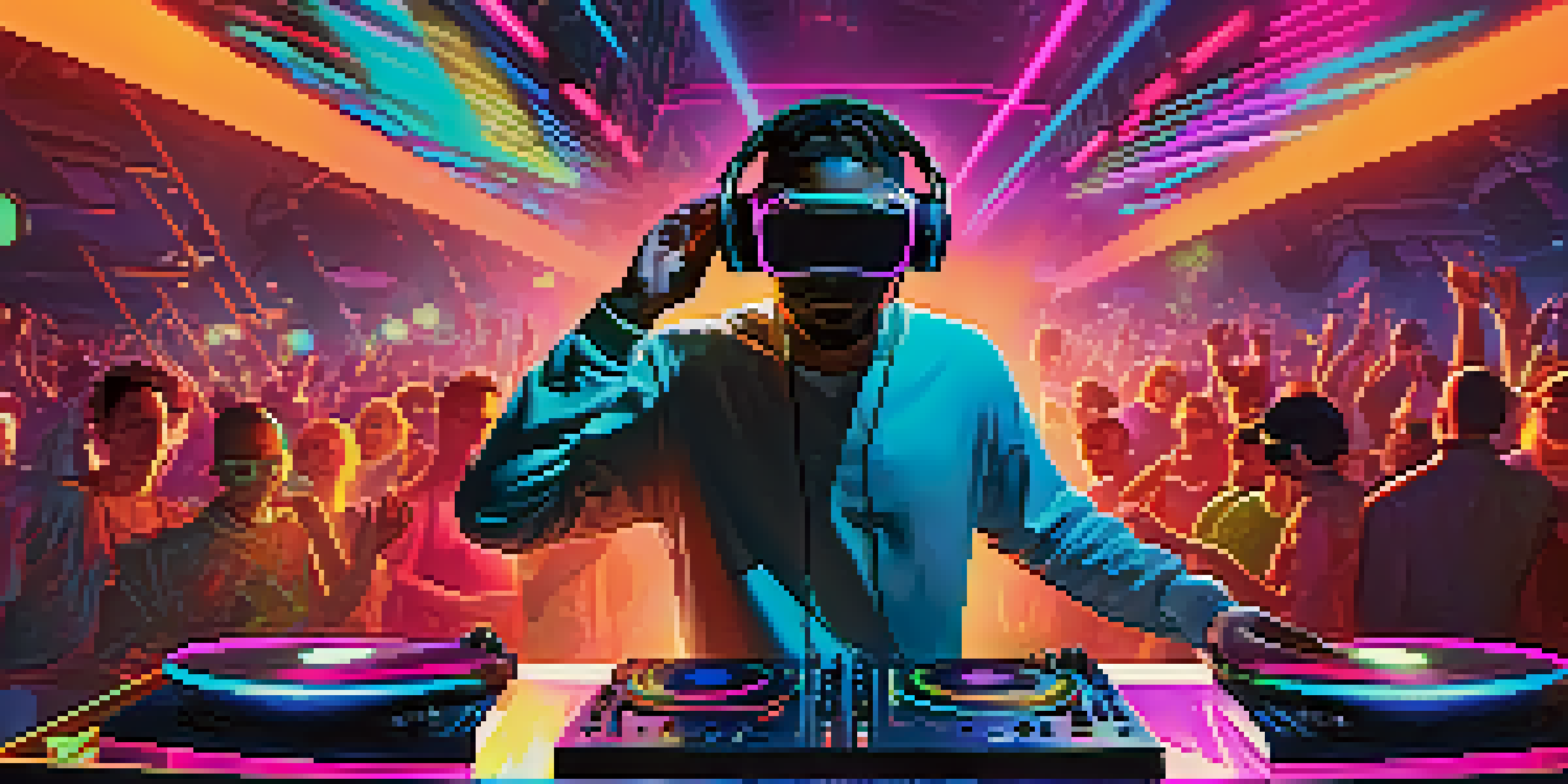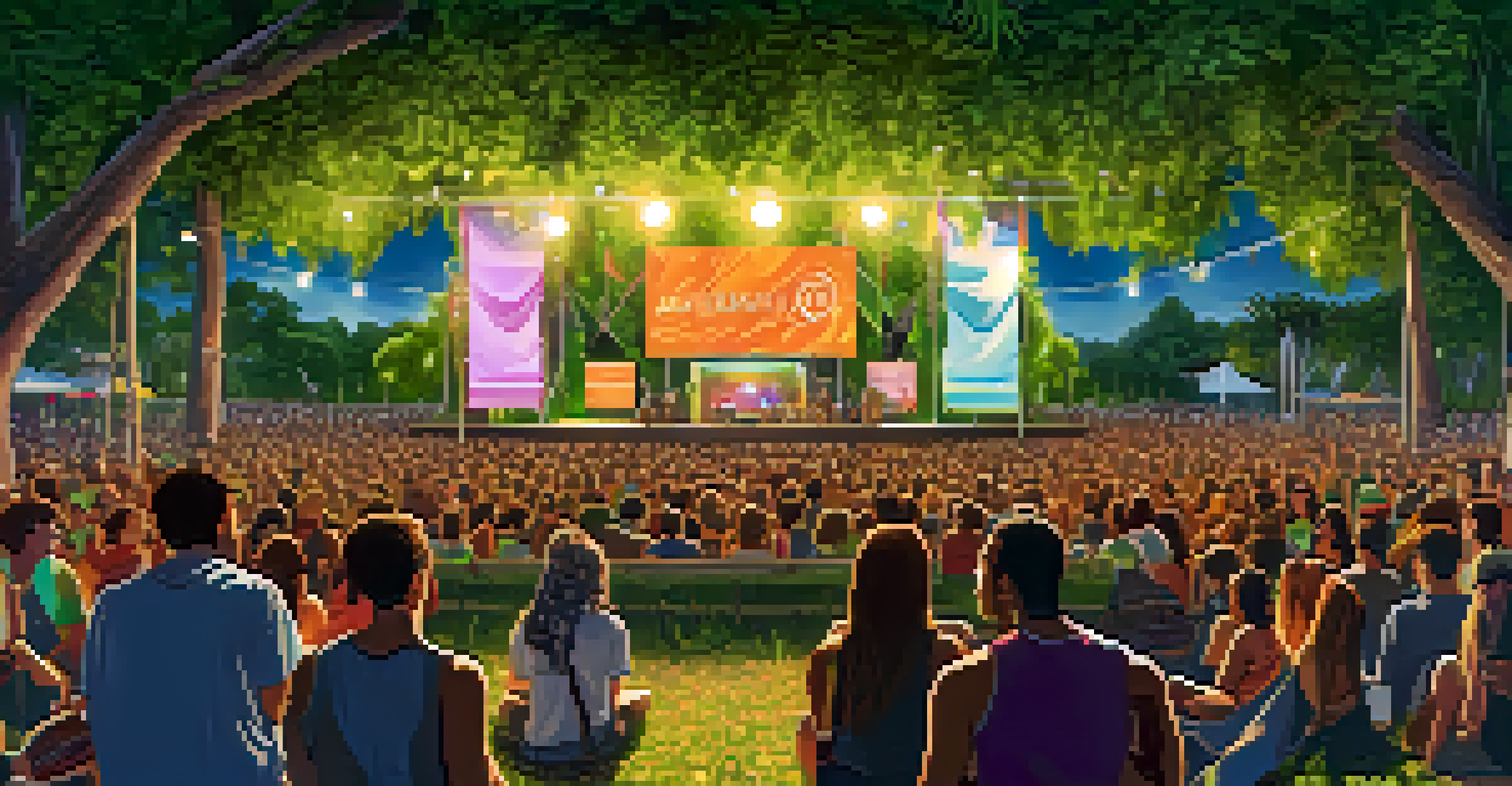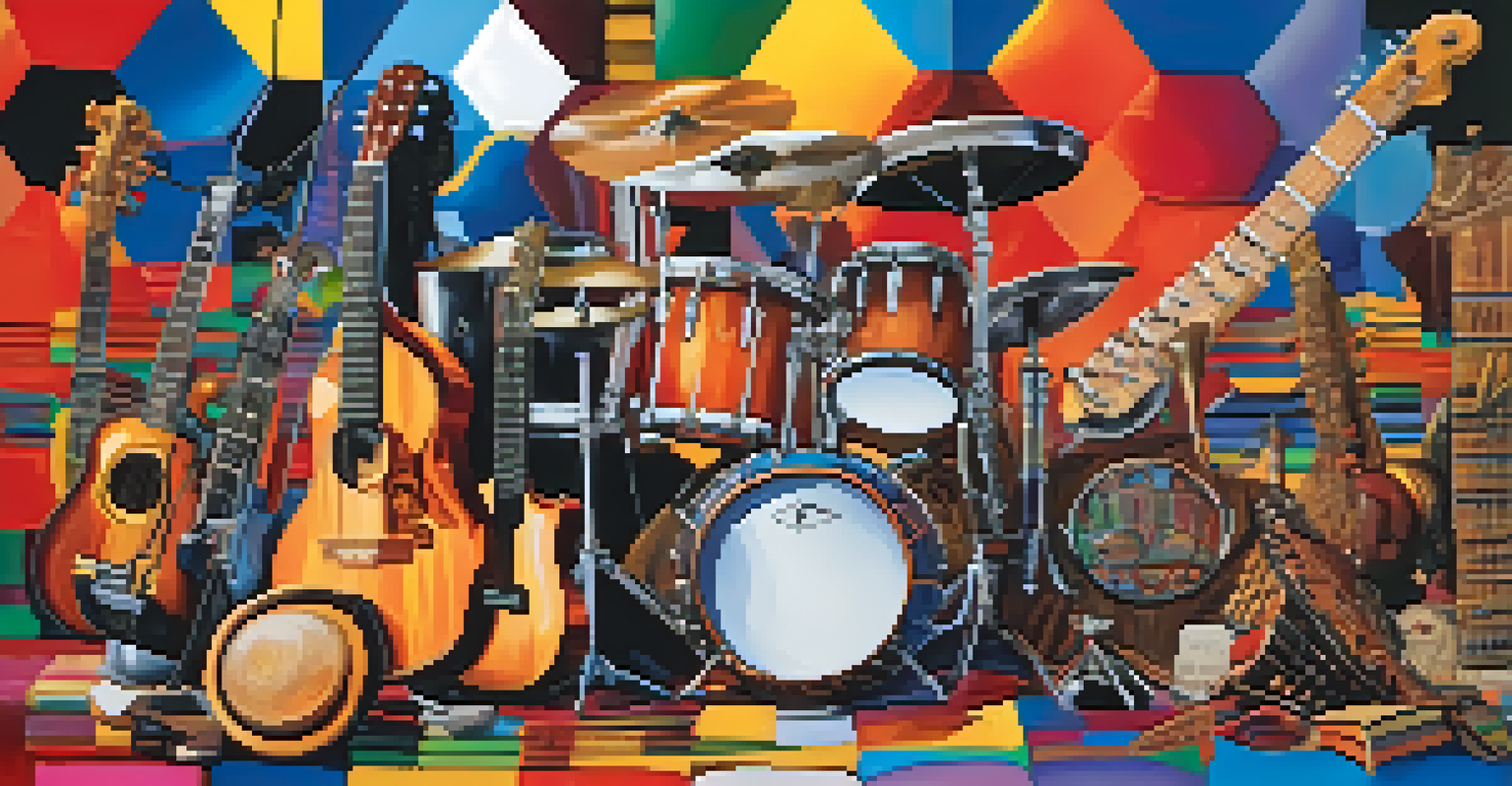The Future of DJing: Trends and Innovations to Watch

Rise of AI in Music Production and DJing
Artificial Intelligence (AI) is making waves in music production, and DJing is no exception. DJs are starting to use AI tools that help them analyze tracks, suggest seamless transitions, and even create unique mixes on the fly. This fusion of technology offers a collaborative approach, allowing DJs to focus more on artistry while AI handles some of the technical aspects.
The future of music is not just about sound; it's about the experience we create around it.
Imagine an AI that can learn your style and preferences after just a few gigs. This not only enhances the performance but also provides invaluable insights into crowd reactions and track popularity. As AI continues to evolve, we can expect even more sophisticated applications that will reshape how DJs interact with their audiences.
However, while AI offers exciting possibilities, it also raises questions about authenticity and creativity. How do we balance machine assistance with the personal touch that defines a great DJ? As this technology develops, the conversation around the role of AI in music will undoubtedly grow.
The Shift Towards Virtual and Augmented Reality Experiences
Virtual Reality (VR) and Augmented Reality (AR) are not just buzzwords; they're transforming the way DJing is experienced. Imagine attending a concert where the DJ is performing in a virtual space, and your avatar dances alongside friends from around the world. This immersive experience can help connect fans in ways that traditional live shows sometimes can't.

AR can also enhance real-life performances, allowing DJs to incorporate dynamic visuals that react to the music. Think of stunning light shows that change with every beat or interactive elements that engage the audience. These technologies not only make performances more engaging but also allow for a level of creativity that was previously unimaginable.
AI Enhances DJing Creativity
AI tools are revolutionizing DJing by analyzing tracks and suggesting transitions, allowing artists to focus more on their performance.
As the technology becomes more accessible, we can expect more DJs to experiment with these tools, pushing the boundaries of performance art. The future of DJing will likely include a blend of physical and digital elements, creating a rich tapestry of sound and sight that captivates audiences.
Growth of Streaming Platforms and DJ Collaborations
The rise of streaming platforms has significantly changed how music is consumed and shared, impacting DJs and producers alike. With platforms like Spotify, SoundCloud, and Mixcloud, DJs can reach global audiences without the constraints of traditional distribution. This shift allows for more diverse music styles and collaborations, giving rise to unique mixes and sounds.
Technology is best when it brings people together.
Moreover, the popularity of live streaming has skyrocketed, especially in recent years. DJs can now broadcast their sets to thousands of fans from their living rooms, breaking geographical barriers. This not only democratizes access to live music but also fosters a sense of community among listeners who can interact in real-time.
Collaborative projects between DJs and artists are also becoming more common, leading to fresh and innovative sounds. As musicians from different genres come together, we can expect to see unique blends that challenge traditional definitions of music, creating exciting new trends in the DJing landscape.
Emphasis on Sustainability in Music Events
As awareness of environmental issues grows, sustainability is becoming a key focus in the music industry, including DJing. From eco-friendly festivals to sustainable equipment, DJs are finding ways to minimize their impact on the planet. This shift not only resonates with environmentally-conscious audiences but also sets a new standard for how events are organized.
For instance, some festivals are implementing initiatives like carbon offsetting and waste reduction programs. DJs are also being encouraged to use energy-efficient gear and promote messages that align with sustainability. This commitment can inspire fans to adopt more eco-friendly practices, creating a ripple effect beyond just the music scene.
Streaming Platforms Expand Reach
Streaming services enable DJs to connect with global audiences and collaborate across genres, fostering a diverse music landscape.
As we move forward, we can expect more collaborations between DJs and environmental organizations, as well as innovative solutions that prioritize both entertainment and sustainability. This trend not only enhances the experience but also aligns with a growing demand for responsibility in the events we support.
Integration of Blockchain Technology in Music Rights
Blockchain technology is revolutionizing many industries, and music is no exception. By providing a decentralized way to track music rights and royalties, blockchain can ensure that artists, including DJs, are fairly compensated for their work. This transparency could transform the landscape of music distribution, making it easier for DJs to manage their earnings.
Imagine a world where every time a track is played, the artist gets automatically compensated without the need for intermediaries. This not only empowers DJs but also enhances trust within the music community. As more DJs and producers explore blockchain, we may see new platforms emerge that prioritize fair compensation and artist rights.
While the concept may seem complex, its potential benefits are clear. As the music industry grapples with issues of copyright and royalties, blockchain could provide a much-needed solution, paving the way for a more equitable future for all music creators.
Emergence of New Genres and Cultural Influences
The world of music is ever-evolving, and as cultures blend, new genres are emerging that are reshaping DJing. Influences from different cultures are being incorporated into mixes, giving rise to unique sounds that reflect a global community. DJs are becoming cultural curators, weaving together diverse musical threads to create something entirely fresh and exciting.
For example, genres like reggaeton and Afrobeat have seen a significant rise in popularity, influencing mainstream music and DJ sets. This crossover not only introduces audiences to new sounds but also fosters appreciation for diverse musical traditions. As DJs continue to experiment with these influences, we can expect to see the birth of even more innovative genres.
Sustainability Shapes Music Events
The music industry is increasingly prioritizing sustainability, encouraging DJs to adopt eco-friendly practices and equipment.
This evolution also highlights the importance of cultural sensitivity and respect. As DJs draw from various musical traditions, it becomes crucial to honor the origins of these sounds. The future of DJing will likely involve a deeper understanding of the cultural context behind the music, enriching the overall experience for both DJs and audiences.
The Role of Social Media in Shaping DJ Careers
Social media has become an essential tool for DJs looking to build their brand and connect with fans. Platforms like Instagram, TikTok, and Twitter allow DJs to showcase their personality, share mixes, and interact with their audience in real-time. This direct engagement can significantly impact a DJ's career, turning a casual listener into a dedicated fan.
Moreover, viral trends on social media can propel a DJ's career to new heights. A catchy mix or dance challenge can catch fire, leading to increased visibility and opportunities. In this digital age, social media is not just a promotional tool; it's a vital part of a DJ's identity and outreach strategy.

As we move forward, the importance of authentic engagement on social media will only grow. DJs who can effectively communicate their vision and connect with their audience will thrive, while those who rely solely on traditional marketing methods may struggle to keep up with the fast-paced nature of the industry.